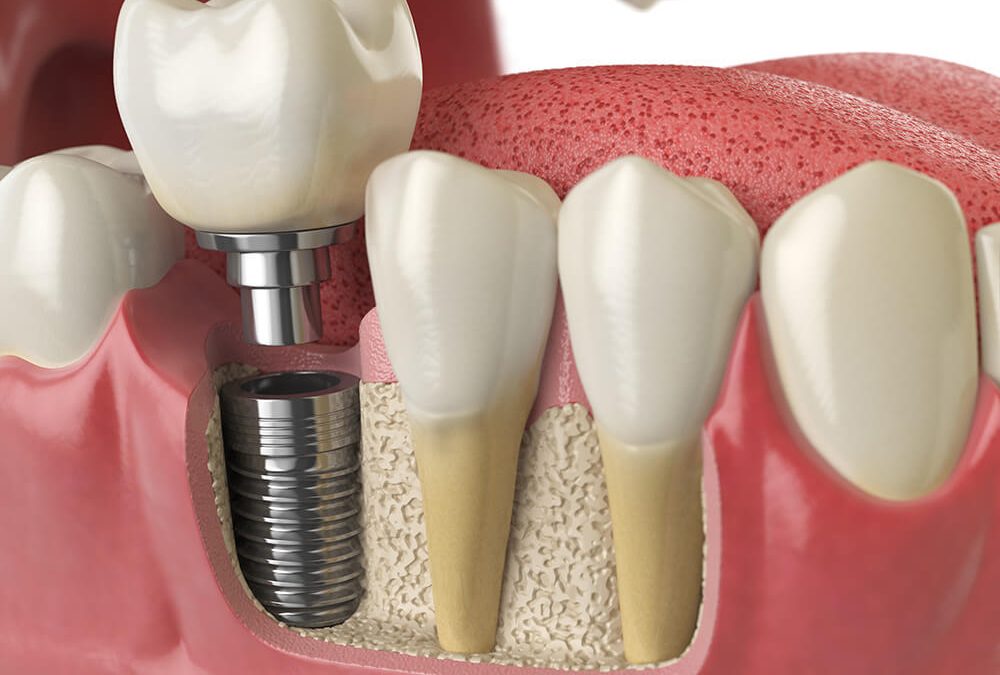Tooth replacement has evolved over the years—especially in the current generation, which accounts to the growing number of patients opting for dental implant procedures. Typically, this is a procedure opted by those with one or more missing teeth, chipped or decayed tooth beyond the capacity for repair, or for those who are uncomfortable with dentures or the biological cost of a tooth with bridges. Dental implant technology has managed to satisfy many of these concerns, while enhancing overall oral health for millions across the globe. But what exactly entails this process and what are the details to look out for before booking an appointment with a dental implant dentist?
Here is some essential information you need to know on the what’s and how’s of dental implants.
The basics
The root of a tooth is not only crucial to make a connection to your jawbone but also for the functionality of the tooth itself. When a tooth is lost along with its root, a replacement can be instilled with metal, namely titanium. Akin to the roots of teeth, the metal fixture can be surgically placed as a root to your jawbone to support the overlying prosthesis.
The preliminary stage
Naturally, your dentist would begin by conducting a comprehensive examination to establish the procedure that would be undertaken in response to your jawbone state. This prepping stage would consist of taking specialised x-rays and a teeth mould to plan the final implant position. This process is essential to allow for a safe and seamless surgery.
In Blackburn North, dental services offered by accredited professionals with varying experiences are a recommended choice to handle any procedures regardless of a patient’s circumstance.
The extraction stage
You might already have a missing tooth or maybe there is a tooth that needs to be removed soon. Those requiring extractions would be advised to wait for adequate healing until the bone infills the extraction site, and the infection is eliminated from the body. It will take 2-3 weeks for the soft tissue to close the socket site, but sometimes up to 3-4 months for the bone to infill the socket.
One of the most pressing concerns for patients include the pain of the procedure. It might be surprising to know that placing an implant might be less sore than removing the original tooth. During the extraction, most patients only report a slight tugging or pressure sensation before the tooth is successfully extracted. Your dental implants dentist may prescribe antibiotics before and after the procedure depending on each case. All options will be discussed with you, implant is only one option of many (notably denture and bridges).
Dental implant insertions and bone grafting
If enough jawbone is present on the specialised X-ray (called a CBCT), the dentist will proceed to place the implant by itself without the need for additional procedures. In some cases, depending on the quantity and quality of bone, the dentist may choose to increase the available width of bone with bone substitute materials. This is done because it is important that there is sufficient blood supply around the bone supporting the implants. Increasing a narrow bone width through grafting allows for more bone and blood supply to be present around your native bone as well as implant. This is important for the long-term health of the implant.
The final abutment placement
Following a period of monitoring for stability and healing, your dentist will test that the implant has successfully integrated or fused to your bone. A healing cap is then placed, to allow for the soft gums to accommodate the final crown. Patients rarely feel discomfort after this stage following the administration of anaesthesia.
The crown
The final step would then see the addition of the crown to the fixture. Similar to any crown treatment, the addition of the crown to the fixture consists of 2 appointments. In the first appointment, an expert lab technician from an Australian lab (we only use quality Australian laboratories) will take moulds of your teeth and fabricate a crown to replace the missing gap while ensuring an appropriate bite. The second appointment involves your dentist installing/or inserting the crown onto the fixture, making sure the crown is fitting precisely where it is planned to go.
As important as your smile is to you, it’s equally important to us. Whether you are in need of general or cosmetic dentistry assistance, we at Blackburn Family Dental Care are here to provide you the care and treatment you need for great oral health. For more than 60 years, we have provided services ranging from root canal treatment and crown, dental implants and dentures, bridges, mouthguards and even sleep apnoea appliances. Along with our glowing reputation and as a testament to our great services, we have also prioritised providing reasonable rates and a wide range of private health coverages for our patients as well. Get in touch with our caring and friendly dentists in Blackburn today for more information!

